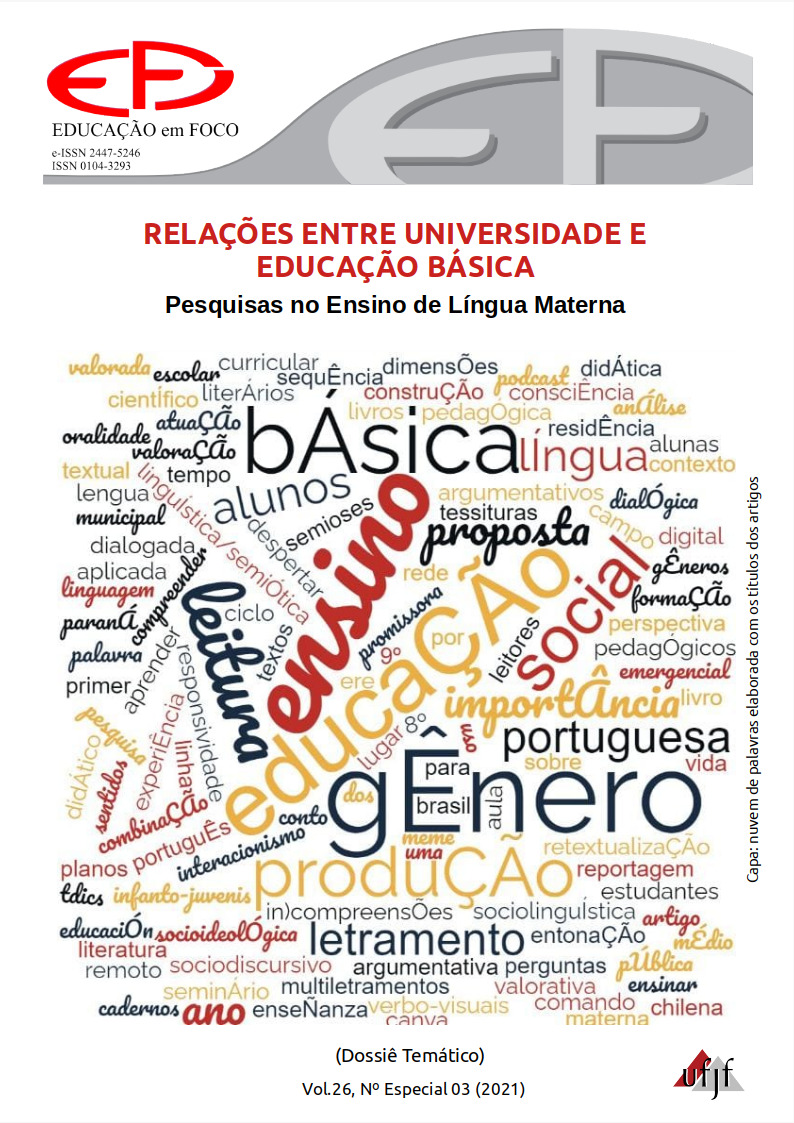A IMPORTÂNCIA DO COMANDO DA PRODUÇÃO DE TEXTOS DE GÊNEROS ARGUMENTATIVOS
DOI:
https://doi.org/10.34019/2447-5246.2021.v26.36351Abstract
The discussions in this paper come from one research developed in the Professional Master's in Language (PROFLETRAS), of the State University of Northern Paraná (UENP), having as object a didactic intervention instrumented by the methodology of didactic sequences of genres developed by researchers from the University of Geneva affiliated to the Sociodiscursive Interactionism (ISD). The goal is to show the importance of constructing command statements of the propositions of argumentative texts production, as is the case of the argumentative reader's letter, the teaching object of the didactic sequence in focus. The theoretical precepts that underlie our analysis derived from ISD studies, especially regarding the planning of textual strings. As an object of analysis and reflection, we bring the development process of the initial production of the didactic sequence of the argumentative reader's letter, as well as different versions of a student's text. The results show that bringing explicitly the controversial issue motivating the writing in the form of a question, in the command statement of the proposed textual production, contributes for students to represent more clearly the textual referent as controversial and organize the textualization from the logic of the argumentative sequence.
Downloads
Downloads
Published
How to Cite
Issue
Section
License
Ao submeter um artigo à revista Educação em Foco e tê-lo aprovado, os autores concordam em ceder, sem remuneração, os seguintes direitos à Educação em Foco: os direitos de primeira publicação e a permissão para que Educação em Foco redistribua esse artigo e seus metadados aos serviços de indexação e referência que seus editores julguem apropriados.

















